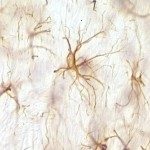Lien vers Pubmed [PMID] – 26544938
Lien vers HAL – pasteur-01230439
Lien DOI – 10.1016/j.cell.2015.10.023
Cell 2015 Nov; 163(4): 894-906
A deficiency in pejvakin, a protein of unknown function, causes a strikingly heterogeneous form of human deafness. Pejvakin-deficient (Pjvk(-/-)) mice also exhibit variable auditory phenotypes. Correlation between their hearing thresholds and the number of pups per cage suggest a possible harmful effect of pup vocalizations. Direct sound or electrical stimulation show that the cochlear sensory hair cells and auditory pathway neurons of Pjvk(-/-) mice and patients are exceptionally vulnerable to sound. Subcellular analysis revealed that pejvakin is associated with peroxisomes and required for their oxidative-stress-induced proliferation. Pjvk(-/-) cochleas display features of marked oxidative stress and impaired antioxidant defenses, and peroxisomes in Pjvk(-/-) hair cells show structural abnormalities after the onset of hearing. Noise exposure rapidly upregulates Pjvk cochlear transcription in wild-type mice and triggers peroxisome proliferation in hair cells and primary auditory neurons. Our results reveal that the antioxidant activity of peroxisomes protects the auditory system against noise-induced damage.





